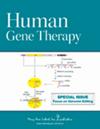A Rapid Cell Expansion Process for Production of Engineered Autologous CAR-T Cell Therapies.
Q1 Immunology and Microbiology
引用次数: 42
Abstract
The treatment of B-cell malignancies by adoptive cell transfer (ACT) of anti-CD19 chimeric antigen receptor T cells (CD19 CAR-T) has proven to be a highly successful therapeutic modality in several clinical trials.1-6 The anti-CD19 CAR-T cell production method used to support initial trials relied on numerous manual, open process steps, human serum, and 10 days of cell culture to achieve a clinical dose.7 This approach limited the ability to support large multicenter clinical trials, as well as scale up for commercial cell production. Therefore, studies were completed to streamline and optimize the original National Cancer Institute production process by removing human serum from the process in order to minimize the risk of viral contamination, moving process steps from an open system to functionally closed system operations in order to minimize the risk of microbial contamination, and standardizing additional process steps in order to maximize process consistency. This study reports a procedure for generating CD19 CAR-T cells in 6 days, using a functionally closed manufacturing process and defined, serum-free medium. This method is able to produce CD19 CAR-T cells that are phenotypically and functionally indistinguishable from cells produced for clinical trials by the previously described production process.用于生产工程化自体CAR-T细胞疗法的快速细胞扩增过程。
通过抗CD19嵌合抗原受体T细胞(CD19 CAR-T)的过继细胞转移(ACT)治疗b细胞恶性肿瘤已经在一些临床试验中被证明是一种非常成功的治疗方式。用于支持初始试验的抗cd19 CAR-T细胞生产方法依赖于许多手动、开放的工艺步骤、人血清和10天的细胞培养来获得临床剂量这种方法限制了支持大型多中心临床试验的能力,也限制了商业化细胞生产的规模。因此,研究完成了简化和优化原来的国家癌症研究所生产过程,从过程中去除人血清,以尽量减少病毒污染的风险,将过程步骤从开放系统转移到功能封闭的系统操作,以尽量减少微生物污染的风险,并标准化额外的过程步骤,以最大限度地提高过程的一致性。本研究报告了一种在6天内生成CD19 CAR-T细胞的过程,使用功能封闭的制造过程和定义的无血清培养基。这种方法能够产生CD19 CAR-T细胞,这些细胞在表型和功能上与通过先前描述的生产过程为临床试验产生的细胞没有区别。
本文章由计算机程序翻译,如有差异,请以英文原文为准。
求助全文
约1分钟内获得全文
求助全文
来源期刊

Human Gene Therapy Methods
BIOTECHNOLOGY & APPLIED MICROBIOLOGY-GENETICS & HEREDITY
CiteScore
5.80
自引率
0.00%
发文量
0
审稿时长
>12 weeks
期刊介绍:
Human Gene Therapy is the premier, multidisciplinary journal covering all aspects of gene therapy. The Journal publishes in-depth coverage of DNA, RNA, and cell therapies by delivering the latest breakthroughs in research and technologies. Human Gene Therapy provides a central forum for scientific and clinical information, including ethical, legal, regulatory, social, and commercial issues, which enables the advancement and progress of therapeutic procedures leading to improved patient outcomes, and ultimately, to curing diseases.
The Journal is divided into three parts. Human Gene Therapy, the flagship, is published 12 times per year. HGT Methods, a bimonthly journal, focuses on the applications of gene therapy to product testing and development. HGT Clinical Development, a quarterly journal, serves as a venue for publishing data relevant to the regulatory review and commercial development of cell and gene therapy products.
 求助内容:
求助内容: 应助结果提醒方式:
应助结果提醒方式:


